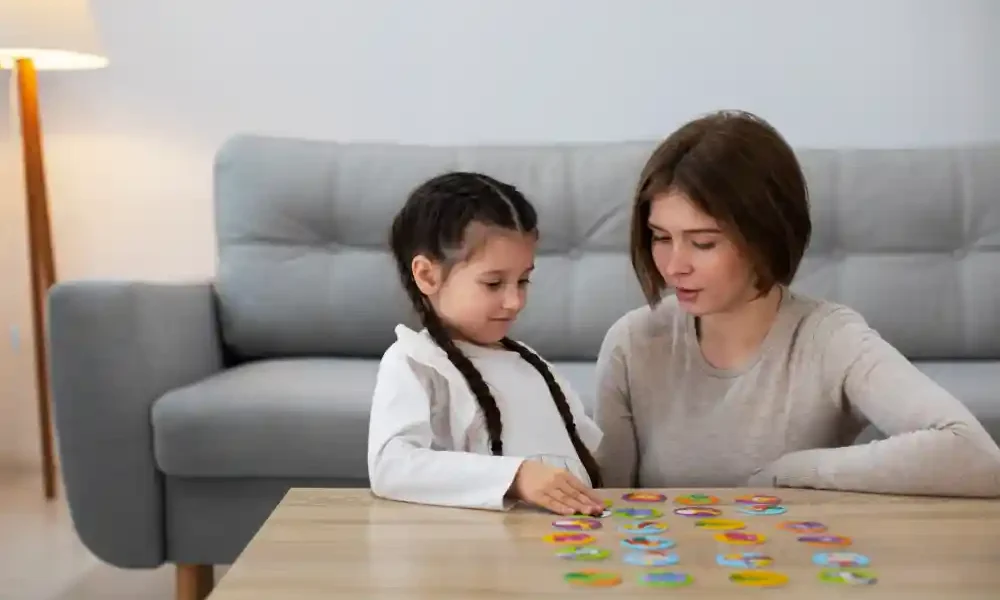Table of Contents
Psychology has been a blessing in the field of medicine. While the advancements in the field of physical health sciences have been quick and astonishing, mental health has long been ignored. It has been established well enough that the effects of mental health deterioration can impact physical health and even interfere with medical treatment and recovery. In the case of children, a similar pattern has been observed, resulting in the subject of Child Psychology being taught as a specialised discipline in universities across the world.
Understanding Child Psychology & Its Key Aspects
Child psychology is a specialised branch of psychology that focuses on children and young adults, with the purpose of aiding their mental growth and development. Physical growth, along with mental, emotional and social development of children, is the prime emphasis of child psychology and development.
The study uses psychological theories and methodologies to understand the mental development of children in comparison to adults and their peers, under a variety of circumstances and factors. It is often grouped with developmental psychology to provide a wider spectrum.
Nonetheless, the value and significance of child psychology are reflected through the key aspects it focuses on. There are 4 key aspects that child psychologists usually look into:
- Cognitive Development: It is one of the most important parts of child development that includes cognitive abilities such as reasoning, symbolism, and abstractness, which are developed and solidified during the early stages of life.
- Emotional Development: A newborn comes into the world fully dependent on their parent. The emotional connection with the adult is formed, and gradually, they develop other self-awareness and self-regulation.
- Physical Development: Physical changes are part and parcel of the child development process, and they inadvertently affect the psychological development of children. Studying these changes helps understand the behaviour of the children and explain their future behavioural patterns as an adult.
- Social Development: From parents to forming bonds in school and universities, to interaction in other social and cultural events, this organic social networking is significantly critical for growing into healthy and level-headed adults.
These key aspects are further fueled by different contexts in every case, like socioeconomic context, cultural context, and social context. Psychology is a diverse field, and when it comes to examining and evaluating children through the lens of psychology, it gets much more complex.
What Does ADHD Stand for? Is it Only Common Among Children?
The study of child psychology deals with many theories, principles, aspects, and contexts, along with common syndromes and symptoms affecting children. One of these issues currently affecting children globally, including 10% of all kids in the US, is the condition popularly known as ADHD.
Attention Deficit Hyperactivity Disorder, or otherwise known as ADHD, is a medical condition commonly diagnosed in children that showcases symptoms such as inability to focus, restlessness or hyperactivity, impulsive actions and so on. Adults may also have ADHD; in fact, 2.5% of adults are believed to have the condition.

The Role of Child Psychology in ADHD Treatment
ADHD in children and adolescents causes severe challenges and difficulties, amounting to behavioural and social disruption alongside academic challenges. Beyond the symptoms, children with ADHD often struggle to function effectively in social settings, which can leave them feeling isolated or excluded from their peers. Given the complex nature of this condition in children, child psychologists rely on various psychological theories to accurately diagnose the specific type of ADHD and determine an appropriate course of treatment.
The key signs of ADHD include a combination of inattention, impulsivity, and hyperactivity. Apart from these apparent signs, there are some not-so-noticable signs like fidgeting, forgetfulness, difficulty sitting still or waiting for turn, disorganisation, distraction, etc. Genetic & non-genetic factors play a significant role in the development of such conditions.
The role of a Child Psychologist in diagnosing and treating patients directly is paramount and undeniable. While the awareness of ADHD in children has increased in recent times, people used to spend their entire lives with such conditions without ever getting diagnosed in childhood, resulting in stress and complications in adulthood.
Understanding ADHD Beyond the Labels: What Child Psychology Students Must Know
As students of Child Psychology, ADHD in children is a topic that is heavily discussed, and the candidates are duly prepared to handle such cases and offer a personally curated treatment plan involving therapy and medicine. They are also taught about the different types of assessments for identifying ADHD in children, alongside comprehensive approaches for treatment.
- Medication Management: In Psychological treatments, medications are used as a last resort for treatment, especially in treating children, and strict management is required to get optimal results.
- Behavioural Therapy: Behavioural therapy for ADHD is the most popular treatment method, where the patients are taught to manage their symptoms as best they can, develop cognitive skills, enhance organisational abilities and improve self-regulation.
- Environmental Modifications: Whether it is home or school, or neighbourhood, a kid needs a healthy and nurturing environment to fully thrive; hence, a psychologist will suggest certain modifications to be made in the child’s environment for them to have a supportive environment.
- Nutritional & Lifestyle Intervention: The 21st-century lifestyle has a lot of problems, especially health-wise, and children growing up in such environments automatically become vulnerable to poor lifestyle choices and trends, which can inadvertently affect their ADHD symptoms, behaviour, and mental well-being.
- Educational Accommodations: The education industry has come under significant scrutiny, especially in third-world countries, where unhealthy competitions seem to be the driving force over the actual process of learning, and such harsh educational environments are detrimental to the development of children’s psyches, especially for kids with ADHD.
- Parental Training: The psychologist may also train the kids’ parents in ways that they can themselves manage their kids when they are triggered, and also help them with timely medication and therapy sessions.
Child psychology is a highly valued and in-demand field across both the healthcare and education sectors. With a child psychology degree, professionals are equipped to play a vital role in ensuring the mental well-being and overall development of children, helping pave the way for a safer and more secure future for every child.





